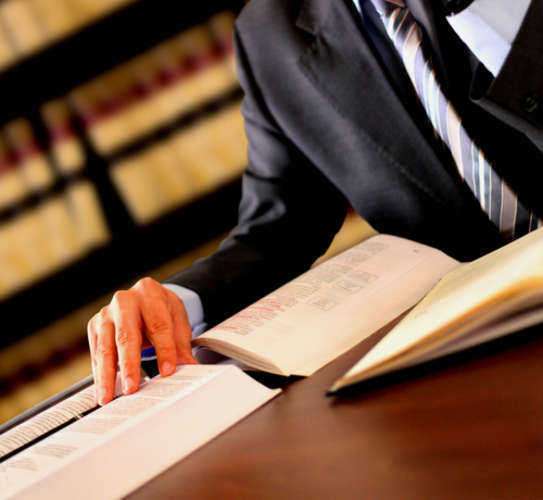Washington DC Law Firms
A brief guide to Washington, D.C. law firms
Regardless of the circumstances that lead a person to consider hiring private legal circumstances, there are certain constants that always apply. Wash., D.C. law firms offer a variety of different services that can help people who need the advice of an attorney. If you decide to seek out a lawyer, here are some things to keep in mind.
The structure of Washington, D.C. law firms

Some attorneys choose to work by themselves and are known as “solo practitioners.” However, commonly they are part of larger Wash., D.C. law firms. These businesses are owned by attorneys known as “partners,” who divide the profits that remain after their salaried employees have been paid. “Associates” are lawyers who work for a fixed salary.
Regardless of their position within a Washington, D.C. law firm, there are two types of lawyers:
• Litigation attorneys appear in court to present arguments on behalf of a client.
• Transactional attorneys work behind the scenes by creating, reviewing and maintaining legally binding documents.
There is no minimum or maximum number of staff members for Washington, D.C. law firms. Most such businesses generally specialize in several areas of legal practice.
Criminal court
The most serious kind of legal problems arise when someone is charged with a misdemeanor or felony by the police or a government agency. Because the consequences can include jail time or a large financial penalty, any defendant is entitled to free, court-appointed legal representation if they cannot pay for the help of a Wash., D.C. law firm.
The criminal prosecution process begins with an “arraignment hearing.” During this initial courtroom appearance, a prosecutor will formally present the charges against you and choose to offer a plea bargain in return for a response of “guilty” or “no contest.” A Washington, D.C. law firm attorney can help you decide whether you should accept any such offer, as well as arguing that any bail that has been set should be lowered.
If you decide to plead “not guilty,” a court date will be set for your trial. Wash., D.C. law firms will take several steps to prepare your defense:
• Throughout the pretrial process, the prosecution and defense are required to regularly exchange any evidence they plan on introducing during the trial. After evaluating the case against you, a Wash., D.C. law firm may conclude that evidence has been improperly collected and file a motion to dismiss the charges against you.
• During the jury selection process, an attorney will be present to make sure no potentially biased jurors are chosen.
• At any time before a verdict is returned, the prosecution and Wash., D.C. law firms representing a defendant may submit a plea bargain agreement to a judge for approval.
When your case is heard in court, an attorney will present the strongest possible case on your behalf. If you are found guilty, a Washington, D.C. law firm attorney will argue for a more lenient punishment than called for by the prosecution during your sentencing hearing.
Civil court
Sometimes two private parties who have a dispute may turn to civil court for a resolution of their differences. One plaintiff may file litigation against another party for such common reasons as:
• Underpayment of wages
• Injury caused by another person or a defective product
• Sexual harassment
• Violation of a business agreement
If someone files a legal complaint against you, you are not entitled to free representation from a Washington, D.C. law firm. You will need to either represent yourself or pay for the private services of an attorney. The vast majority of civil litigation is settled outside of the courtroom. Wash., D.C. law firms representing both parties will conduct extensive negotiations to arrive mutually acceptable financial settlement.
Preventive litigation
Many business owners choose to regularly retain the services of an attorney to safeguard against the possibility of a lawsuit. This involves paying a Wash., D.C. law firm to regularly perform transactional litigation by:
• Ensuring a workplace is in compliance with all applicable safety standards
• Drafting employee contracts
• Reviewing all tax paperwork
• Making sure all reasonable accommodations have been made for disabled employees
It is also recommended that anyone involved in a real estate transaction have a Wash., D.C. law firm review any paperwork they are going to sign. Buying, selling or leasing property commits both parties to honor financial obligations. Making sure both parties understand the document they are signing can help avoid misunderstandings or lawsuits.
Finding a Washington, D.C. law firm
You should never rush into any professional relationship. If you decide you could benefit from the counsel of Washington, D.C. law firms, first clarify your goals by asking yourself:
• What kind of specialized legal advice do I need?
• How much can I pay for the help of a Wash., D.C. law firm?
• What do I hope to achieve through the legal process?
Next, ask friends, family and business associates to recommend Washington, D.C. law firms they have successfully worked with. Prior to scheduling a meeting with any of these businesses, look up the disciplinary record of the attorney you will be speaking with to make sure they are in good legal standing and have not been cited for any ethical violations.
To get the most out of any initial consultation at any Washington, D.C. law firms, arrive with all documents that are relevant to your case. After examining these, an attorney will need to ask many questions to get a wider picture of the strengths and weaknesses of your case. Answer the inquiries of any Wash., D.C. law firm in as much detail as you are capable of.
During your first meeting, it is very important to obtain a detailed, written estimate of all costs you may be legally liable for. Doing so will help ensure a professional, trustworthy relationship with any Washington, D.C. law firm you hire.